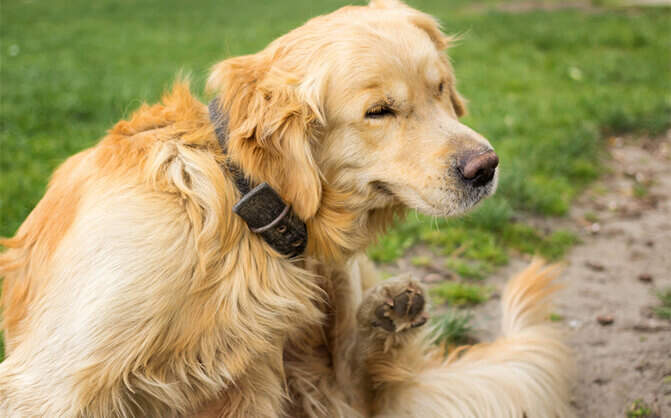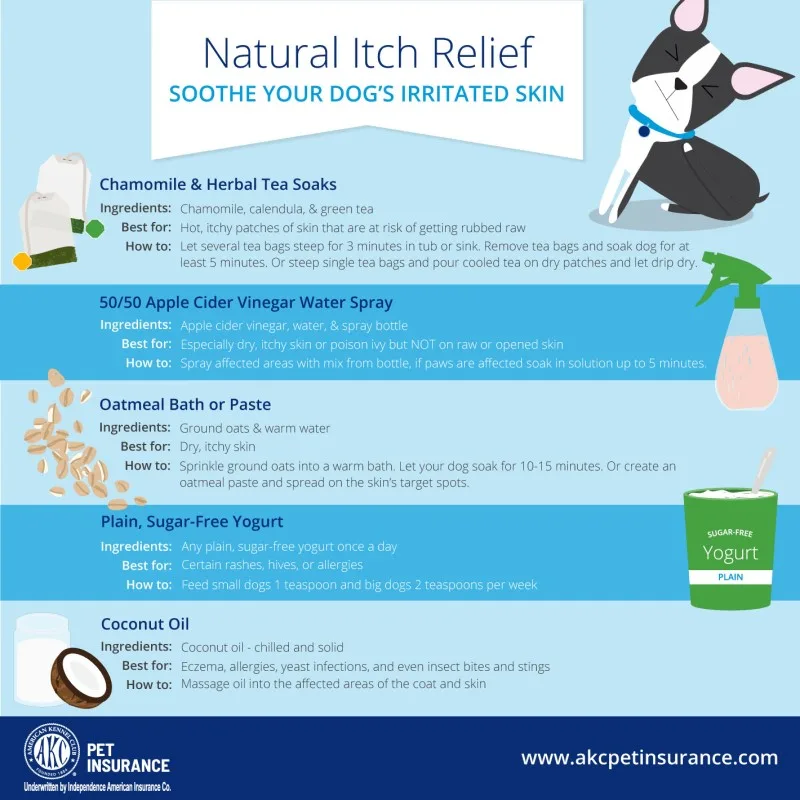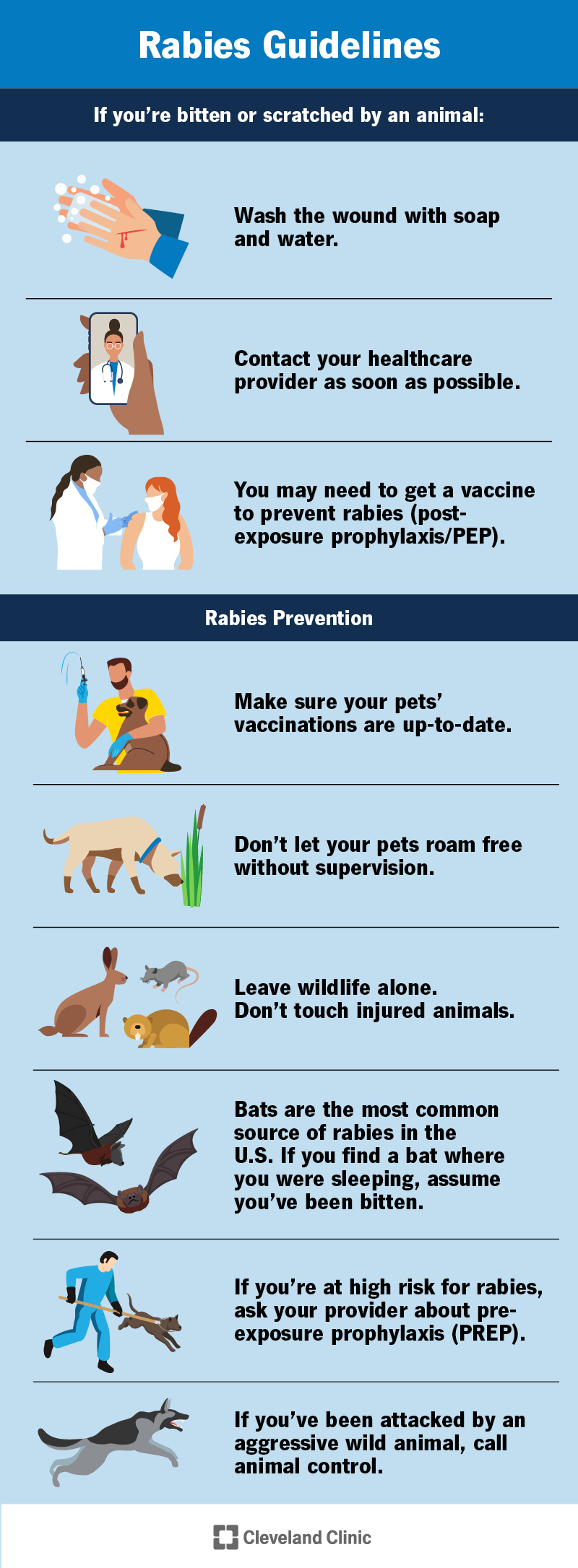If your dog is constantly scratching and biting himself but has no fleas, it could be due to other causes such as allergies or sensitivities to certain foods or environmental factors. Changing your dog’s diet to eliminate potential allergens and seeking advice from a veterinarian can help address the issue.
Regular bathing and grooming can also reduce the chances of pests like fleas and mites causing irritation. Additionally, there are various itch relief remedies available such as chamomile and green tea soaks, colloidal oatmeal baths, and apple cider vinegar that can provide relief for your dog’s itching.
It’s important to consult a vet if the scratching and biting persist to rule out any underlying health conditions.

Credit: www.adamspetcare.com
Understanding The Causes Of Constant Scratching And Biting
If you’ve noticed your dog constantly scratching and biting himself, but you’ve ruled out fleas as the culprit, there could be other underlying causes. It’s important to understand these causes in order to provide your furry friend with the necessary relief and treatment. In this article, we will explore three common reasons for constant scratching and biting in dogs: flea allergy dermatitis, food allergies, and environmental allergies.
Flea Allergy Dermatitis
Flea allergy dermatitis is a common condition that can cause intense itching and discomfort in dogs. Even if you don’t see fleas on your dog, a single flea bite can trigger an allergic reaction. This hypersensitivity to flea saliva can lead to intense scratching and biting. It’s important to note that some dogs may have a stronger reaction than others, and even a small number of fleas can cause significant discomfort.
Food Allergies
Food allergies can also contribute to constant scratching and biting in dogs. Just like humans, dogs can develop allergies to certain foods. Common food allergens in dogs include beef, chicken, dairy, wheat, and soy. When a dog consumes a food they are allergic to, it can cause an immune response, resulting in itchiness and skin irritation. If you suspect that your dog has a food allergy, it’s best to consult with your veterinarian to determine the appropriate diet and possible elimination trial to identify the allergen.
Environmental Allergies
Environmental allergies, also known as atopic dermatitis, occur when a dog has a hypersensitivity to substances in their environment such as pollen, dust mites, or mold. These allergens can cause itching, redness, and inflammation in the skin, leading to constant scratching and biting. Environmental allergies often present with seasonal patterns, with symptoms worsening during certain times of the year. If you suspect that your dog has environmental allergies, your veterinarian may recommend allergy testing or prescribe medication to alleviate the symptoms.
Understanding the specific cause of your dog’s constant scratching and biting is crucial in determining the appropriate treatment and relief. Whether it’s flea allergy dermatitis, food allergies, or environmental allergies, working closely with your veterinarian is essential to ensure your dog’s comfort and well-being.
Methods To Relieve Itching And Biting
If your dog is constantly scratching and biting himself but doesn’t have fleas, there are several methods you can try to provide relief. Itching and biting can be caused by allergies, dry skin, or other underlying issues. By addressing the root cause and implementing these methods, you can help alleviate your dog’s discomfort and improve their overall well-being.
Bathing And Grooming
Regular bathing and grooming play a crucial role in managing your dog’s itching and biting. Bathing your dog with a gentle, hypoallergenic shampoo can help soothe their skin and remove any irritants or allergens. Remember to use lukewarm water and avoid over-bathing, as excessive bathing can strip the natural oils from your dog’s coat, leading to further dryness and itching.
Grooming, such as regular brushing and haircuts, is also important. It helps to remove loose hair and prevent matting, which can cause discomfort and contribute to itching. Additionally, keeping your dog’s nails trimmed can prevent them from scratching themselves excessively.
Changing Your Dog’s Diet
Diet plays a significant role in managing itchiness in dogs. Some dogs may have food allergies or sensitivities that manifest as scratching and biting. Consider switching your dog to a hypoallergenic or limited ingredient diet that avoids common allergens such as beef, chicken, dairy, or grains.
A novel protein or grain substitute, such as fish, pork, lamb, venison, duck, or legumes, can be introduced to determine if your dog’s itching improves. It’s best to consult with a veterinarian to ensure proper nutrition and to rule out any underlying health conditions.
Using Itch Relief Products
There are various itch relief products available that can provide temporary relief for your dog. These products include soothing sprays, medicated shampoos, and topical creams or ointments specifically formulated for dogs. Look for products that contain ingredients like aloe vera, oatmeal, chamomile, or hydrocortisone, as these can help soothe irritated skin.
However, before using any itch relief products, it’s important to consult with your vet to ensure they are safe and appropriate for your dog’s specific condition. They can guide you in choosing the right product and provide recommendations based on your dog’s individual needs.
To effectively manage your dog’s constant scratching and biting, it’s essential to address the underlying cause and implement a multi-faceted approach. Incorporating regular bathing and grooming, changing your dog’s diet, and utilizing vet-approved itch relief products can all contribute to soothing your dog’s itchy skin and improving their quality of life.
When To Seek Veterinary Help
If your dog is constantly scratching and biting himself even though there are no fleas present, it could be a sign of an underlying issue that requires veterinary attention. While occasional itching is normal for dogs, persistent itching and biting can indicate a more serious problem. In this blog post, we will discuss the signs of infection, the importance of seeking veterinary help, and the ineffectiveness of home remedies.
Persistent Itching And Biting
Persistent itching and biting can indicate various dermatological issues, ranging from allergies to skin infections. If your dog is constantly scratching or biting a specific area, it may be a sign of localized irritation or an underlying condition. This behavior can lead to self-inflicted wounds, hair loss, and further skin damage if left untreated.
Signs Of Infection
One of the reasons to seek veterinary help is when you notice signs of infection. If your dog’s scratching and biting are accompanied by redness, swelling, oozing, or a foul odor, it could indicate a secondary bacterial or yeast infection. Infections can make your dog uncomfortable and worsen the itching, so prompt veterinary intervention is necessary to alleviate the symptoms and prevent further complications.
Unsuccessful Home Remedies
While there are various home remedies and over-the-counter products available to alleviate itching, these may not always be effective. It’s crucial to understand that the underlying cause of your dog’s constant scratching and biting may not be easily resolved with home treatments alone. Veterinary intervention is necessary to diagnose the root cause and provide targeted treatment options tailored to your dog’s specific needs.
In conclusion, if your dog is constantly scratching and biting himself without any fleas present, it is essential to seek veterinary help. Persistent itching and biting, signs of infection, and unsuccessful home remedies are indications that your dog requires professional care. Prompt intervention can help provide relief for your furry friend and address the underlying issues causing the discomfort.

Credit: www.akcpetinsurance.com

Credit: my.clevelandclinic.org
Frequently Asked Questions On My Dog Is Constantly Scratching And Biting Himself No Fleas
How Can I Stop My Dog From Scratching And Biting Herself?
To stop your dog from scratching and biting herself, try regular bathing, haircuts, and changing her food to eliminate allergens. You can also use itch relief products like chamomile and green tea soaks, colloidal oatmeal baths, and apple cider vinegar.
If the itch persists, consult a veterinarian.
What Is The Best Itch Relief For Dogs?
The best itch relief for dogs includes chamomile and green tea soaks, colloidal oatmeal baths, apple cider vinegar, fish oil, aloe vera, baking soda, and a specialized diet. Regular bathing, haircuts, and changing your dog’s food can also help prevent scratching and biting.
If the itching persists, consult a veterinarian.
What Foods Help Dogs With Itchy Skin?
To help dogs with itchy skin, try feeding them a different diet with novel proteins like fish, pork, lamb, venison, duck, or rabbit. Opt for dry kibbles designed to relieve skin problems, which typically contain a single meat source and a single grain source or a starchy vegetable substitute like potatoes, sweet potatoes, or legumes.
Will Dogs Itch Even If They Don’t Have Fleas?
Dogs can itch even if they don’t have fleas due to food allergies, sensitivity to pollens, mites, or other causes. It is important to consult a vet for careful monitoring and to identify the underlying cause of the itching.
Conclusion
If your dog is constantly scratching and biting himself but doesn’t have fleas, there could be other underlying causes. Food allergies, sensitivity to pollens, mites, or other factors may be responsible. Regular bathing, changing your dog’s diet, and using itch relief remedies like chamomile and green tea soaks can help alleviate the discomfort.
However, if the itching persists, it’s always best to consult with your vet for further evaluation. Remember, keeping your furry friend comfortable and itch-free is essential for their overall well-being.



